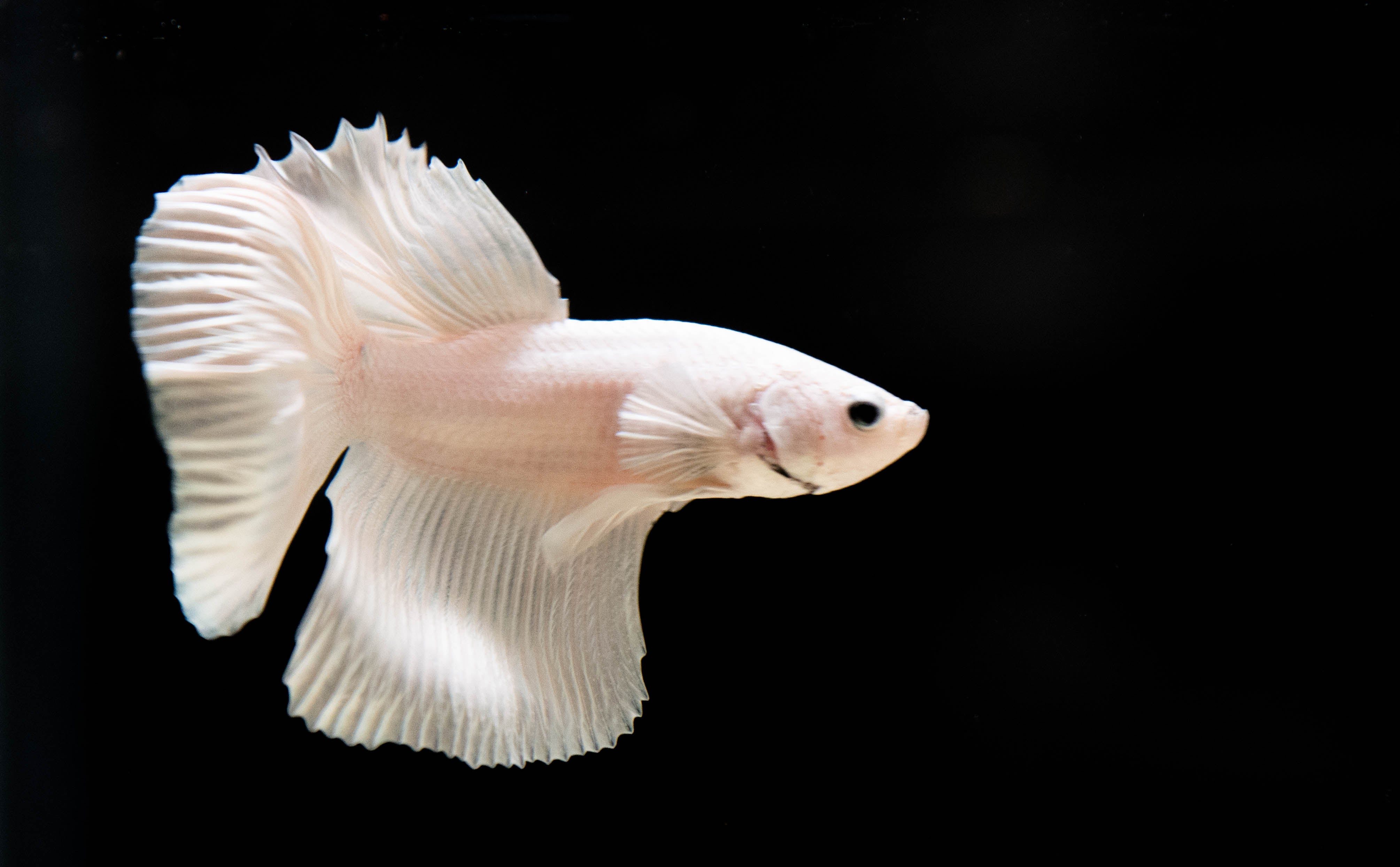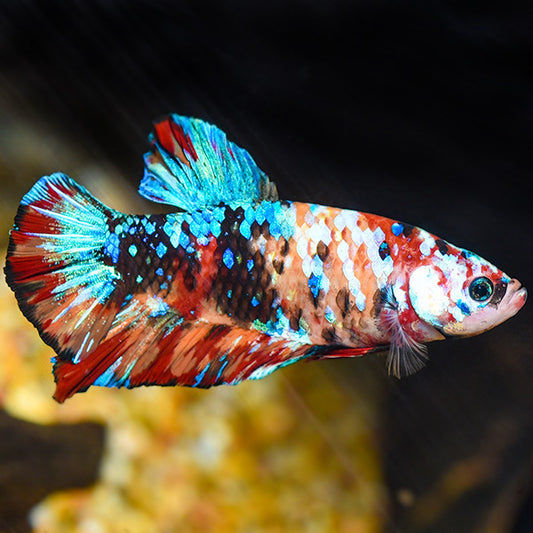Everything About Betta Fish: Comprehending Their Unique Requirements, Behavior, and the most effective Practices for Optimal Treatment
Recognizing the unique needs and behaviors of Betta fish is vital for any type of aquarist looking to supply optimum treatment. betta fish. As we discover these components better, the effects for both amateur and seasoned fish caretakers come to be significantly noticeable, elevating inquiries concerning just how ideal to suit these exceptional fish in our homes.
Betta Fish Review
Although usually appreciated for their vivid shades and streaming fins, Betta fish, clinically understood as Betta splendens, are complex creatures that require specific treatment to grow. Stemming from Southeast Asia, these freshwater fish are recognized for their territorial nature and special habits. Betta fish exhibit sexual dimorphism, with men presenting a lot more dazzling shades and longer fins than females.
Their hostile tendencies, particularly amongst men, require careful factor to consider when housing them. Bettas are typically kept in single-specimen containers to avoid territorial conflicts. They can exist together quietly with particular suitable species in bigger neighborhood tanks, supplied the environment fulfills their requirements.

To make certain ideal treatment, aquarists need to recognize their one-of-a-kind behavioral traits, dietary needs, and habitat demands. betta fish. With appropriate interest, Betta fish can display their lively characters and grow in a properly maintained fish tank setup
All-natural Habitat and Environment
Betta fish grow in a diverse variety of natural environments, primarily located in the superficial waters of Southeast Asia, consisting of rice paddies, swamps, and slow-moving streams. These atmospheres are characterized by cozy temperature levels, usually between 75 ° F and 82 ° F(24 ° C and 28 ° C ), and a pH level varying from 6.5 to 7.5, which is optimal for their health and wellness and wellness.
In their natural environments, Betta fish are accustomed to dense plants, providing both shelter and breeding premises. The visibility of plants such as floating water lilies and thick grasses not just provides protection from killers but additionally adds to the oxygenation of the water, which is vital for their respiratory demands. Additionally, these settings commonly have areas of still water, permitting Betta fish to exhibit their all-natural behaviors such as bubble nesting.
Recognizing the natural environment of Betta fish is essential for fish tank lovers. Reproducing these conditions-- via water temperature, pH balance, and the incorporation of online plants-- can significantly improve the total health and wellness and long life of these fascinating fish, guaranteeing they flourish in a home fish tank setting.
Social Actions and Interactions
Recognizing the social habits and communications of check that Betta fish is vital for effective aquarium monitoring. Betta fish, or Siamese battling fish, are understood for their unique behavioral attributes, characterized mostly by territoriality and aggression. Males, specifically, show very hostile actions towards one an additional, resulting in the notorious credibility of Betta fish as boxers. In a restricted room, two men can participate in fierce fights, frequently causing injury or death.
Conversely, women Bettas exhibit less aggressive habits and can coexist in groups, called sororities, if introduced appropriately. It is vital to monitor their interactions closely, as pecking order and dominance can lead to disputes. Comprehending the characteristics within a Betta area is crucial; developing concealing spots and ensuring adequate room can minimize aggression.
In enhancement, Betta fish might additionally show curiosity and social actions towards other types. While they can exist side-by-side with specific non-aggressive storage tank mates, it is necessary to select compatible types to avoid stress and aggressiveness. Generally, identifying these social communications is essential to cultivating a harmonious fish tank environment for Betta fish.
Crucial Care Guidelines
Offering proper look after Betta fish is critical to their health and well-being. To make sure a flourishing atmosphere, it is crucial to keep ideal water problems. The water temperature need to be maintained between 76 ° F and 82 ° F(24 ° C to 28 ° C), while pH degrees ought to range from 6.5 to 7.5. Routine water adjustments-- approximately 25% once a week-- assistance keep water high quality.
Betta browse around these guys fish call for a suitable storage tank dimension; a minimum of 5 gallons is advised to offer appropriate room for swimming and hiding. Include decorations and plants to produce a revitalizing setting, but prevent sharp items that can damage their delicate fins.

Lastly, make sure the storage tank is geared up with a filter to maintain the water tidy, however use a mild filter to prevent strong currents that can emphasize the fish. By adhering to these vital care standards, proprietors can promote a healthy and balanced and lively Betta fish.
Common Health Issues and Solutions
In the treatment of Betta fish, understanding of common wellness problems is important for maintaining their wellness. One prevalent concern is fin rot, frequently triggered by bad water quality or microbial infection. Symptoms consist of frayed or blemished fins. To treat fin rot, boost water conditions and consider utilizing a broad-spectrum antibiotic.
Another common disorder is ich, a parasitical infection identified by white areas on the fish's body (betta fish). Therapy includes increasing water temperature level and adding fish tank salt to the container, as this can assist get rid of the bloodsucker
Swim bladder condition is likewise regularly observed, resulting in buoyancy troubles. This problem may occur from overfeeding or irregular bowel movements. A fasting period of 24-48 hours, complied with by a diet regimen of blanched peas, can provide relief.
Finally, bettas might experience velour disease, suggested by a gold dust-like look on their skin. Therapy generally needs drug specifically developed for outside bloodsuckers, along with boosted tank hygiene.
Regular tracking of water specifications, keeping a tidy setting, and giving a balanced diet are essential safety nets. By addressing these health issues quickly, Betta fish can lead healthier, much more site web dynamic lives.
Final Thought
In summary, successful betta fish treatment needs an understanding of their distinct demands and habits. Routine monitoring of wellness and water high quality, along with a balanced diet plan, contributes to the long life and vibrancy of betta fish.